|
|
|
|
|
|
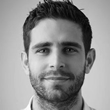 |
INVITED
Industrial Forum |
|
 |
| . |
|
|
Carlos Abellan
Quside, Spain
Invited - Industrial Forum
|
|
|
|
|
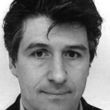 |
| INVITED |
|
 |
| . |
|
|
Christopher Bauerle
Neel Institut / CNRS, France
Invited – Plenary Session
hristopher BÄUERLE is Research Director at the NEEL Institute – CNRS, Grenoble. He received his B.S degree in 1990 from the University of Karlsruhe, Germany, his M.S. degree in 1992 from the University of Massachusetts, Amherst, USA and his PhD degree in 1996 from the University Joseph Fourier, Grenoble, France. After working for two years at the University of Tsukuba and the University of Tokyo, he joined the NEEL Institute in 1998. He made significant contributions to the field of symmetry-breaking phase transition using ultracold superfluid 3He as well as to the understanding of phase coherence in mesoscopic systems. More recently his research interests focus on single-electron transport using surface acoustic waves as well as ultrashort charge pulses with the aim to realize electronic flying qubits.
|
|
|
|
|
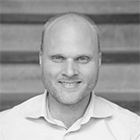 |
INVITED
Industrial Forum |
|
 |
| . |
|
|
Niels Bultink
Qblox BV, the Netherlands
Invited - Industrial Forum
Niels specializes in controlling quantum computers performing the first feedback on solid-state qubits in 2012. His PhD research with Leonardo DiCarlo at TU Delft has led to more than ten scientific publications centred around fault-tolerant quantum computing with superconducting circuits. The work at QuTech enabled the control of setups with up to 50 qubits and has now found its way to the market via the company Qblox. With Qblox new and industrialized generation of control stacks, he is paving the way for quantum computer integrators worldwide to reach practical applications in quantum computing.
|
|
|
|
|
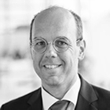 |
| PLENARY |
|
 |
| . |
|
|
Tommaso Calarco
Forschungszentrum Jülich, Germany
Plenary Talk
Tommaso Calarco has pioneered the application of quantum optimal control methods to quantum computation and to many-body quantum systems. Currently the Director of the Institute for Quantum Control of the Peter Grünberg Institute at Forschungszentrum Jülich, Tommaso received his PhD at the University of Ferrara and started to work as a postdoc in the group of P. Zoller at the University of Innsbruck. He was appointed as a Senior Researcher at the BEC Centre in Trento in 2004 and as a Professor for Physics at the University of Ulm in 2007, where he then became Director of the Institute for Complex Quantum Systems and of the Centre for Integrated Quantum Science and Technology. He has authored in 2016 the Quantum Manifesto, which initiated the European Commission’s Quantum Flagship initiative, and is currently the Chairman of one of the Flagship’s Governing Bodies: The Quantum Community Network.
|
|
|
|
|
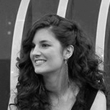 |
| INVITED |
|
 |
| . |
|
|
Alba Cervera Lierta
Barcelona Supercomputing Center, Spain
Invited – Plenary Session
Alba Cervera-Lierta is a Senior Researcher at the Barcelona Supercomputing Center and the coordinator of "Quantum Spain" project. She earned her PhD in 2019 at the University of Barcelona, where she studied a physics degree and a Msc in particle physics. After her PhD, she moved to the University of Toronto as a postdoctoral fellow at the Alán Aspuru-Guizik group. She recently joined the Barcelona Supercomputing Center as a Senior Researcher and coordinates the Spanish quantum computing initiative "Quantum Spain". She works on near-term quantum algorithms and their applications, high-dimensional quantum computation, and artificial intelligence strategies in quantum physics.
|
|
|
|
|
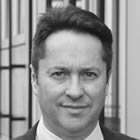 |
| PLENARY |
|
 |
| . |
|
|
Ignacio Cirac
Max Planck Institute of Quantum Optics, Germany
Plenary Talk
Born on October 11, 1965 in Manresa, Spain. Licenciado (graduate) in theoretical physics, Universidad Complutense de Madrid (1988), PhD in Physics, Universidad Complutense de Madrid (1991), Fellow "Formación del Personal Investigador" (Prog. General) (1989-1991), "Profesor Titular de Universidad", Departamento de Física Aplicada, Universidad de Castilla-La Mancha (1991-1996), Research Associate, Joint Institute for Laboratory Astrophysics, University of Colorado (1993-1994), Professor, Institute for Theoretical Physics, Leopold Franzens University Innsbruck (1996-2001), Director and Scientific Member Max Planck Institut of Quantum Optics (since 2001), Honorary Professor, Technical University of Munich (since 2002).
|
|
|
|
|
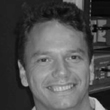 |
| INVITED |
|
 |
| . |
|
|
Silvano de Franceschi
CEA/UGA, France
Invited – Plenary Session
Silvano de Franceschi is a researcher in experimental condensed-matter physics. At the end of 2006, he joined the Commissariat à l’Energie Atomique et aux Energies Alternatives (CEA) in Grenoble. His research activities are positioned in the field of quantum nanoelectronics, a branch of nanoscience whose general goal is to investigate the electronic properties of nanometer-scale electronic devices and to explore new device operation principles base on quantum mechanics.
|
|
|
|
|
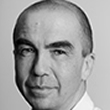 |
| INVITED |
|
 |
| . |
|
|
Hugues de Riedmatten
ICFO, Spain
Invited – Plenary Session
|
|
|
|
|
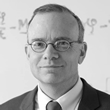 |
| KEYNOTE |
|
 |
| . |
|
|
David DiVincenzo
FZ Jülich / RWTH Aachen, Germany
Keynote – Plenary Session
David DiVincenzo (Philadelphia, VS, 1959) has a secondary appointment as professor at the EEMCS Department at the TU Delft and a staff member at QuTech since 2017. His primary appointment is as Director, Theoretical Nanoelectronics, Forschungszentrum Jülich (Germany). He received his doctorate at the University of Pennsylvania, Philadelphia, USA in 1983; was a postdoc at Cornell University, Ithaca, USA; then Research Staff Member at IBM Watson Research Center, Yorktown Heights, New York, USA (1985-2011). Having been granted an Alexander von Humboldt Professorship in 2010, he became a professor at the Institute of Theoretical Quantum Information at RWTH Aachen University and director of the Peter Grünberg Institute, where he serves to the present. He is a Fellow of the American Physical Society (1999), and Associate Editor of the Reviews of Modern Physics (2011-present).David DiVincenzo was one of the first physicists to engage in quantum information research and is considered an authority on quantum information processing. In particular, his name is associated with the development of criteria for the quantum computer, known as the DiVincenzo Criteria, and also with the Loss-DiVincenzo approach to solid-state spin-based qubits.
|
|
|
|
|
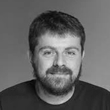 |
INVITED
Industrial Forum |
|
 |
| . |
|
|
Sebastian Etcheverry
Luxquanta, Spain
Invited - Industrial Forum
He currently works as CTO at LuxQuanta Technologies. He has a large experience in opto-electronics, fiber optics components, quantum key distribution, and quantum cryptography. He completed a PhD in Applied Physics in 2017 at the Royal Institute of Technology (KTH), Sweden, where he worked on fiber optics sensing technology for industrial applications. After his PhD, Etcheverry obtained an international postdoc grant from the Swedish Research Council to work at the Institute of Photonic Science (ICFO) in Barcelona. For more than 4 years, Etcheverry worked at ICFO on developing systems for quantum cryptography and quantum key distribution. Such developments contributed to the creation of spin-off company LuxQuanta Technologies, lunched in May 2021
|
|
|
|
|
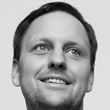 |
INVITED
Industrial Forum |
|
 |
| . |
|
|
Jan Goetz
IQM, Finland
Invited - Industrial Forum
Jan is a quantum physicist and co-founding CEO of IQM, building next-generation quantum computers. IQM has assembled an exceptional team of international quantum experts developing co-design quantum computers to tackle the hardest challenges of modern society. IQM's breakthroughs include pioneering on-chip components for ultra-fast processors and hardware-efficient solutions for application-specific computers. IQM has raised more than EUR 71 million in funding, including the largest seed investment round in Finnish history. Jan did his doctorate on superconducting quantum circuits at the Technical University of Munich and worked as a Marie Curie Fellow in Helsinki at Aalto University, where he holds the title of docent. Capital magazine selected him as one of the 40 under 40 in Germany and he received the prestigious entrepreneurship award from the KAUTE Foundation. Jan is in the Board of the European Quantum Industry Consortium QuIC, a quantum advisory board to the German space agency DLR, and the German Federal Economic Senate (Bundeswirtschaftssenat).
|
|
|
|
|
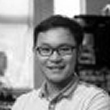 |
| INVITED |
|
 |
| . |
|
|
Wister Huang
ETH Zurich, Switzerland
Invited – Plenary Session
|
|
|
|
|
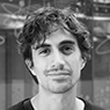 |
| INVITED |
|
 |
| . |
|
|
Alexandre Jaoui
ICFO, Spain
Invited – Plenary Session
|
|
|
|
|
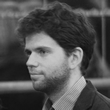 |
| INVITED |
|
 |
| . |
|
|
Daniel Jirovec
IST Austria, Austria
Invited – Plenary Session
Daniel Jirovec completed his BSc in general Physics at the University of Pisa in Italy. He then moved to Aachen (Germany) for his MSc in Nanoelectronics at the Rheinisch-Westfälische Technische Hochschule. There, he worked for one year in the group of Hendrik Bluhm on Silicon spin qubits. In 2017 he joined the group of Georgios Katsaros (https://nanoelectronicsgroup.wordpress.com/) at the Institute of Science and Technology in Austria where he is working on spin qubits in two dimensional hole gases in germanium. He completed his PhD in September 2021 and is now working in the group as a PostDoc.
|
|
|
|
|
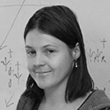 |
| INVITED |
|
 |
| . |
|
|
Karyn Le Hur
Ecole Polytechnique, France
Invited – Plenary Session
Theoretical physicist aiming to answer fundamental questions in physics-related interdisciplinary research areas engaging many-body systems, condensed matter, quantum information theory, AMO systems and nanoelectronics.
|
|
|
|
|
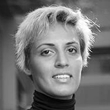 |
| INVITED |
|
 |
| . |
|
|
Prineha Narang
Harvard University, USA
Invited – Plenary Session
Prineha Narang is an Assistant Professor at the John A. Paulson School of Engineering and Applied Sciences at Harvard University. Prior to joining the faculty, Prineha came to Harvard as a Ziff Environmental Fellow at the Harvard University Center for the Environment. She was also a Research Scholar in Condensed Matter Theory at the MIT Dept. of Physics, working on new theoretical methods to describe quantum interactions.
|
|
|
|
|
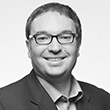 |
| INVITED |
|
 |
| . |
|
|
Roman Orus
DIPC/Multiverse, Spain
Invited – Plenary Session
I am the Scientific Director (CSO) and Cofounder of Multiverse Computing, as well as Ikerbasque research professor at the Donostia International Physics Center (DIPC) in San Sebastián, Spain. After obtaining my degree and PhD in Physics at the University of Barcelona in 2006, I worked as a research fellow at the University of Queensland, Australia, and the Max Planck Institute of Quantum Optics, Germany, as well as a junior professor at Johannes Gutenberg-Universität in Mainz, Germany. I was also visiting professor at the Universitè Paul Sabatier – CNRS, France, and at the DIPC. My research has been recognized by several awards, including a Marie Curie Incoming International Fellowship, and the Early Career Prize (2014) by the European Physical Society. I have written more than 80 scientific articles about quantum research cited around 5500 times, and I am also honorary member of the steering board of the journal Quantum, member of the ‘Quantum for Quants’ (Q4Q) commission of the Quantum World Association, partner at Entanglement Partners, and president of the Specialized Group on Quantum Information at the Spanish Royal Society of Physics.
|
|
|
|
|
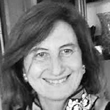 |
| INVITED |
|
 |
| . |
|
|
Gloria Platero Coello
ICMM-CSIC, Spain
Invited – Plenary Session
Gloria Platero is Research Professor at the Theoretical Condensed Matter Departament which belongs to the Materials Science Institute of Madrid (CSIC). Gloria received her PhD degree at the UAM (Universidad Autónoma de Madrid). Her research during the PhD was devoted to the theoretical analysis of surface phonons and scattering of atoms in surfaces. After this period she obtained a NATO fellowship, and afterwards, a MPI contract at the MPI High Magnetic Field Laboratory in Grenoble where she spent about two years as postdoctoral researcher. There she collaborated with Prof. M. Altarelli, in the electronic and optical properties of semiconductor quantum wells and superlattices under strain and external magnetic fields. After that she obtained a postdoctoral fellowship at the UAM, where she was Honorary Professor for eight years, and initiate a research line on quantum transport in semiconductor heterostructures under magnetic and ac electric fields. She got a permanent position at the Spanish Research Council CSIC and promoted later on to Research Professor.
|
|
|
|
|
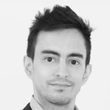 |
INVITED
Industrial Forum |
|
 |
| . |
|
|
Ramiro Sagastizabal
Qilimanjaro, Spain
Invited - Industrial Forum
Quantum Engineer with focus on hardware and control. Final year PhD in Quantum Computing - TU Delft. MSc in Physics
|
|
|
|
|
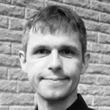 |
| INVITED |
|
 |
| . |
|
|
Henning Schomerus
Lancaster University, UK
Invited – Plenary Session
|
|
|
|
|
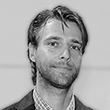 |
| INVITED |
|
 |
| . |
|
|
Klaas-Jan Tielrooij
ICN2, Spain
Invited – Plenary Session
Klaas-Jan Tielrooij joined the ICN2 in October 2018, starting the ICN2 Ultrafast Dynamics in Nanoscale Systems Group. In July 2018, he was awarded a visiting professorship at the Graduate School of Excellence “Material Science in Mainz” (Germany). Before coming to the ICN2, he was a research fellow at fellow-BIST institute ICFO in Barcelona. He obtained his Ph.D. at the University of Amsterdam (Netherlands) in December 2010. He was awarded an ERC Starting Grant in 2018.
|
|
|
|
|
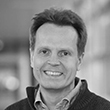 |
| INVITED |
|
 |
| . |
|
|
Felix von Oppen
Freie Universität, Germany
Invited – Plenary Session
|
|
|
|
|
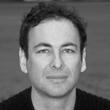 |
| INVITED |
|
 |
| . |
|
|
Xavier Waintal
IRIG - CEA Grenoble, France
Invited – Plenary Session
Xavier Waintal graduated from Polytechnique school, Paris area, in 1995 (X92), did a master of theoretical physics at Ecole Normale Superieure Paris, and moved on to the group of J-L Pichard in Saclay for his PhD (1999). He spent two years as a postdoc in P. Brouwer's group in Cornell University, USA and was hired as a permanent researcher in CEA Saclay in 2002. In 2009, he moved to INAC, CEA Grenoble.
|
|
|
|
|
| |
|
|
|
|
|
|
|
© Phantoms Foundation 2021 |
|
|
|